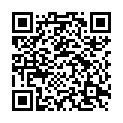|
|
|
| Module code: E2304 |
|
|
2V+1U (3 hours per week) |
|
5 |
| Semester: 3 |
| Mandatory course: yes |
Language of instruction:
German |
Assessment:
Exam
[updated 30.10.2023]
|
E2304 (P211-0133) Electrical Engineering and Information Technology, Bachelor, ASPO 01.10.2018
, semester 3, mandatory course, technical
|
45 class hours (= 33.75 clock hours) over a 15-week period.
The total student study time is 150 hours (equivalent to 5 ECTS credits).
There are therefore 116.25 hours available for class preparation and follow-up work and exam preparation.
|
Recommended prerequisites (modules):
None.
|
Recommended as prerequisite for:
|
Module coordinator:
Prof. Dr. Martin Buchholz |
Lecturer: Prof. Dr. Martin Buchholz
[updated 10.09.2018]
|
Learning outcomes:
After successfully completing this module, students will be able to identify Maxwell´s equations and characterize their areas of applications. They will be able to independently derive the boundary and transition conditions and completely decouple Maxwell´s equations using the coaxial line as an example, and finally solve and interpret the telegraph equations. Furthermore, quadrupoles provide the basis for understanding, applying, and evaluating quadrupoles. They will also be able to determine switch-on and switch-off operations.
[updated 30.10.2023]
|
Module content:
1. From Maxwell’s theory to the coaxial conductor
2. Quadripole theory
2. Circuit forms, open circuit and short circuit
3. Matrix chain, resistance matrix, conductance matrix,
4. Chain circuit, parallel circuit, series circuit, four-pole chains
[updated 30.10.2023]
|
Teaching methods/Media:
Presentation, blackboard, lecture notes
[updated 08.01.2020]
|
Recommended or required reading:
Baumeister, Johann: Stable Solution of Inverse Problems, Vieweg, Braunschweig, 1987
Becker, Klaus-Dieter: Theoretische Elektrotechnik, VDE, Berlin, 1982, ISBN 3-80071275-X
Bergmann, Ludwig; Schaefer, Clemens: Lehrbuch der Experimentalphysik, Bd. III Teil 1: "Wellenoptik", Walter de Gruyter, Berlin, 1962
Blume, Siegfried: Theorie elektromagnetischer Felder, Hüthig, Heidelberg, 1991, 3. Aufl.
Collin, Robert E.: Field theory of guided waves, McGraw-Hill, New York, 1960
Hafner, Christian: Numerische Berechnung elektromagnetischer Felder, Springer, Berlin, 1987, ISBN 3-540-17334-X
Hofmann, Hellmut: Das elektromagnetische Feld: Theorie u. grundlegende Anwendungen, Springer, Wien, (akt. Aufl.)
Jänich, Klaus: Analysis für Physiker und Ingenieure, Springer, Berlin
Schäfke, Friedrich Wilhelm: Einführung in die Theorie der speziellen Funktionen der mathematischen Physik, Springer, Berlin, 1963
Simonyi, Károly: Theoretische Elektrotechnik, VEB Deutscher Verlag der Wissenschaften, Berlin, 1977
[updated 30.10.2023]
|


